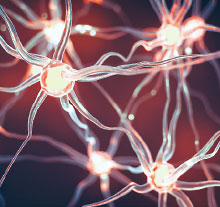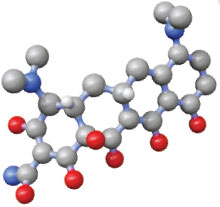Journal Digest
Bereavement Adds to Adverse Effects of Poor Sleep

Researchers at Northwestern University Feinberg School of Medicine and colleagues have found that bereavement makes people more susceptible to the adverse biological consequences of poor sleep, such as increased inflammation.
As described in the journal Psychosomatic Medicine, the researchers assessed 101 older adults with self-reported sleep problems; this included 54 recently widowed individuals going through bereavement and 47 married or single controls. The researchers measured sleep quality, depressive symptoms, and levels of the inflammatory C-reactive protein (CRP). Elevated CRP levels have been associated with a risk of heart disease.
In the overall group, there was no association between the degree of sleep quality and levels of CRP once depression was factored in. However, among bereaved individuals there was a strong and significant association between sleep disturbances such as insomnia or waking up early and CRP levels. The analysis suggested bereaved individuals are up to three times more likely to develop inflammation due to poor sleep.
“Sleep problems may be most detrimental to health after losing a spouse,” said lead study author Diana Chirinos, Ph.D., in a press release. “If someone is experiencing sleep problems shortly after the loss of a spouse, it’s important for them to seek treatment.”
Chirinos DA, Ong JC, Garcini LM, et al. Bereavement, Self-Reported Sleep Disturbances and Inflammation: Results From Project HEART. Psychosom Med. October 8, 2018. [Epub ahead of print].
Glutamate Levels May Predict Outcomes of Patients at Risk of Psychosis

Changes in hippocampal function are believed to play a role in the onset of psychosis. A study published in JAMA Psychiatry suggests that the concentration of the neurotransmitter glutamate and several other metabolites in the hippocampus may offer clues about patients who are most likely to transition to psychosis.
For the study, researchers at University Medical Center Utrecht in the Netherlands and colleagues used an imaging technique known as proton magnetic resonance spectroscopy to measure baseline levels of glutamate and several other metabolites in 86 individuals at high risk for psychosis and 30 healthy controls. On the day of the scanning, the researchers used several scales to assess the participants’ functioning as well as symptoms of anxiety and depression. About 18.5 months later, the researchers met face to face with 57 of the 86 participants in the high-risk group to assess whether the patients had transitioned to psychosis; they also assessed the overall functioning in this group.
In total, 12 of 57 people in the clinical high-risk group experienced a first episode of psychosis; 19 showed “good overall functioning” (Global Assessment of Function, or GAF, scale equal to or greater than 65), and 38 had “poor functional outcome” (GAF less than 65).
Patients who transitioned to psychosis had significantly higher hippocampal glutamate levels at the start of the study than those patients who did not transition, the authors reported. These patients also had significantly higher levels of the metabolites myo-inositol and creatine than those who did not develop psychosis. Moreover, patients with higher levels of hippocampal glutamate at baseline were found to have lower levels of overall functioning at follow-up, the authors reported.
“The findings indicate that adverse clinical outcomes in individuals at high risk for psychosis may be associated with an increase in baseline hippocampal glutamate levels, as well as an increase in myo-inositol and creatine levels,” the authors wrote.
Bossong MG, Antoniades M, Azis MA et al. Association of Hippocampal Glutamate Levels With Adverse Outcomes in Individuals at Clinical High Risk for Psychosis. JAMA Psychiatry. November 14, 2018. [Epub ahead of print]
Mirtazapine, SSRI/SNRI Combo Fails to Boost Response in Patients With TRD

Patients with treatment-resistant depression (TRD) do not appear to significantly benefit from the addition of mirtazapine to selective serotonin reuptake inhibitor (SSRI) or serotonin norepinephrine reuptake inhibitor (SNRI) treatment, reports a study in the British Medical Journal.
Researchers at the University of Bristol in England enrolled 480 adults with major depression who continued to meet criteria for depression after taking SSRI or SNRI antidepressants for at least six weeks. The participants were randomly assigned to receive 30 mg mirtazapine daily or placebo in addition to their existing antidepressant for up to 52 weeks. Mirtazapine was selected because the medication acts on different receptors than SSRIs and SNRIs, which “could enhance clinical response compared with monotherapy with SSRIs or SNRIs,” the authors wrote.
After 12 weeks, the average scores on the Beck Depression Inventory II were slightly lower in the mirtazapine group than the placebo group (18.0 versus 19.7), but the difference was not statistically significant. Follow-up assessments at 24 weeks and 52 weeks also found no differences between the groups.
Patients in the mirtazapine group reported more adverse effects than those in the placebo group; 46 participants in the mirtazapine group who reported an adverse effect stopped taking the drug, compared with nine patients who stopped taking the placebo pills.
“The lack of clear evidence of benefit in our study, combined with the increased burden of adverse effects in the mirtazapine group, means that we cannot recommend this combination as a routine strategy in primary care for those who remain depressed after adequate treatment with SSRI or SNRI antidepressants,” the authors concluded.
Kessler DS, MacNeill SJ, Tallon D, et al. Mirtazapine Added to SSRIs or SNRIs for Treatment Resistant Depression in Primary Care: Phase III Randomised Placebo Controlled Trial (MIR). BMJ. 2018; 363:k4218.
Adjunctive Minocycline May Not Reduce Symptoms of Schizophrenia

Patients with recent-onset schizophrenia who took antipsychotics and the antibiotic minocycline for 12 months did not experience symptom improvements greater than patients taking antipsychotics alone, reports a study in Lancet Psychiatry.
The findings call into question the results of previous smaller studies, which had suggested the anti- inflammatory actions of minocycline might benefit patients with schizophrenia.
For this study, 207 adults who had received a schizophrenia diagnosis within the past five years were assigned to receive either minocycline (200 mg daily for the first two weeks and 300 mg daily for the remainder of the study) or placebo for 12 months. All participants continued to receive their standard care, which included antipsychotic medications.
The researchers assessed the participants’ negative symptoms, positive symptoms, and depression symptoms at months 2, 6, 9, and 12. Patients in both groups showed improvements in negative symptoms, positive symptoms, and depression symptoms over the course of the trial, but there were no differences between the groups. The researchers also measured blood biomarkers associated with inflammation and found no differences over time between the two study groups.
“Minocycline does not benefit negative or other symptoms of schizophrenia over and above adherence to routine clinical care in first-episode psychosis,” the authors wrote.
The study was conducted by researchers at the University of Manchester in England.
Deakin B, Suckling J, Barnes TRE, et al. The Benefit of Minocycline on Negative Symptoms of Schizophrenia in Patients with Recent-Onset Psychosis (BeneMin): A Randomised, Double-Blind, Placebo-Controlled Trial. Lancet Psychiatry. 2018; 5(11):885-894.
Uric Acid Levels May Distinguish Unipolar from Bipolar Depression

Currently, there are no good biomarkers to predict whether a patient who develops depression will eventually convert to bipolar disorder. A study published in Bipolar Disorders suggests that uric acid (UA) might be such a biomarker. Excess amounts of UA are responsible for gout but have also been associated with manic episodes.
Investigators at the University of Coimbra in Portugal reviewed the medical records of 250 patients who were hospitalized between June 2007 and June 2010 with a diagnosis of major depressive disorder (MDD). Of this group, 55 patients were eventually diagnosed with bipolar disorder.
The investigators found that the 55 patients who developed bipolar disorder had much higher serum levels of uric acid at hospitalization than those who did not develop bipolar disorder; this was true for both men (403.84 μmol/L versus 270.81 μmol/L) and women (302.19 μmol/L versus 202.69 μmol/L).
“This novel finding suggests that routine evaluation of serum UA levels when managing a depressive episode in the inpatient setting might be useful to distinguish between depressive episodes in the context of MDD or BD [bipolar disorder],” the researchers wrote.
Dos Santos Oliveira PM, Santos V, Coroa M, et al. Serum Uric Acid as a Predictor of Bipolarity in Individuals With a Major Depressive Episode. Bipolar Disord. October 30, 2018. [Epub ahead of print]
Medication Use Confounds Alzheimer’s Trial Results

Many clinical trials testing medications for Alzheimer’s disease or other dementias allow participants to continue to take memantine or the cholinesterase inhibitor (ChEI) donepezil for the treatment of their dementia. A meta-analysis appearing in JAMA Network Open reports now that clinical trial participants taking these medications may show greater cognitive decline compared with those not taking these medications.
“Differences in the use of cholinesterase inhibitors and memantine between treatment and placebo groups of clinical trials may lead to the conclusion that a treatment is effective when it is not, or vice versa,” the authors wrote.
For the study, researchers from the University of Alabama and University of Southern California analyzed data from 10 clinical studies that included 2,714 participants. Among this group, 906 participants were taking a cholinesterase inhibitor, 143 were taking memantine, 923 were taking both, and 742 were taking neither.
On average, participants taking any concomitant medication had significantly more errors on their yearly cognitive tests than those not taking the medications. For example, participants who took memantine (with or without a cholinesterase inhibitor) scored about two points lower than people not taking memantine each year. The authors noted that if an experimental medication improved cognitive test scores by just 2 points each year, that would be considered a strong therapeutic effect.
While large clinical trials try and balance the percentage of people in each group taking concomitant medications, smaller trials may have an imbalance, the authors cautioned. In addition, studies that reanalyze a subpopulation of patients from a previously completed clinical trial (for example, only looking at male patients) may end up with imbalanced groups. In both cases, this imbalance could skew the results. ■
Kennedy RE, Cutter G, Fowler ME, Schneider LS. Association of Concomitant Use of Cholinesterase Inhibitors or Memantine With Cognitive Decline in Alzheimer Clinical Trials: A Meta-analysis. JAMA Netw Open. 2018; 1(7):e184080.



